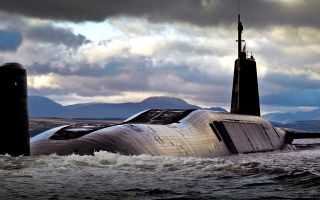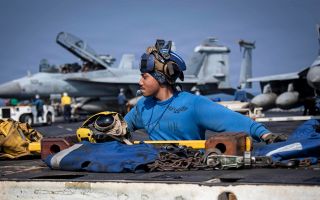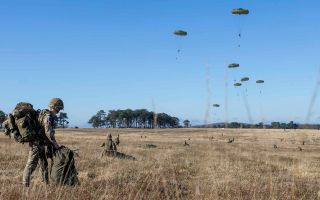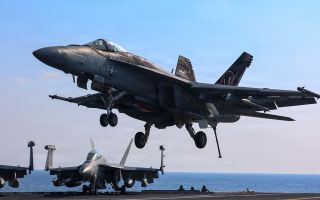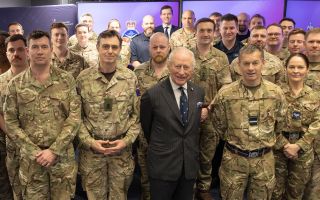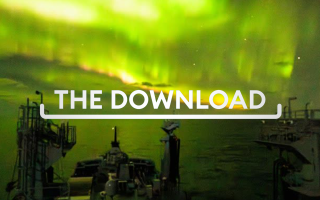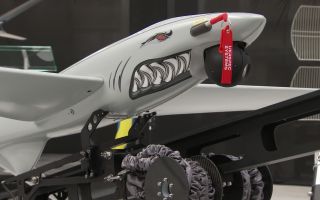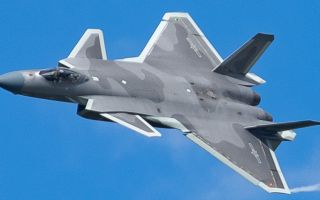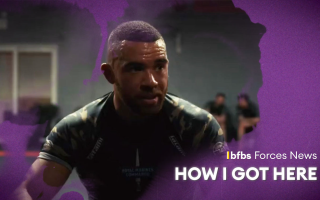Mission Everest team 'very lucky' to escape avalanche early in climb, expedition leader says
A team of four veterans were "very lucky" to get through an avalanche while scaling the world's highest mountain, the expedition leader has said.
Two of the team spoke to BFBS Forces News in their first broadcast interview since reaching Mount Everest's summit.
Veterans Minister Al Carns and expedition leader Major Garth Miller spoke from a pizza restaurant in Kathmandu before boarding their flight back to London Heathrow.
Members of the Mission Everest team experienced an avalanche, which was caught on film, while on the Khumbu Icefall on the first day out of Everest's Base Camp.
Maj Miller said the group was "very lucky" as there was nothing they could do about the situation.
"The avalanche came down one of the sides of the Khumbu Icefall. And we knew it was going to hit us because we could see that it was enormous," he said.
"We just had to hold position, and we hunkered down on our hands and knees.
"We were breathing oxygen, so we were never going to be buried."
He added that the avalanche "didn't feel extraordinary".
The team was made up of Maj Garth Miller, 51, Veterans Minister and former Royal Marines Colonel Al Carns, 45, Anthony "Staz" Stazicker, 41, who was seen on television's SAS: Who Dares Wins, and Kevin Godlington, 49, one of the founding members of the charity Tickets for Troops.
The four veterans waved a Union Flag when they reached the 8,849m peak – the flag belonged to Mr Carns, who said he'd carried it with him on every tour.
Before the quartet headed to Nepal, they embarked on hypoxic training, sleeping and exercising in a low-oxygen environment, which creates the physiological changes that occur at high altitude.
The acclimatisation was vitally important as they attempted to set a record by completing the epic trek from London to the top of Everest and back in just seven days to raise £1m for veterans' charities.
Controversially, they also inhaled xenon gas ahead of the expedition.
The technique, which is undergoing experimentation, is thought to aid the body in producing red blood cells, therefore cutting the length of time needed to acclimatise.
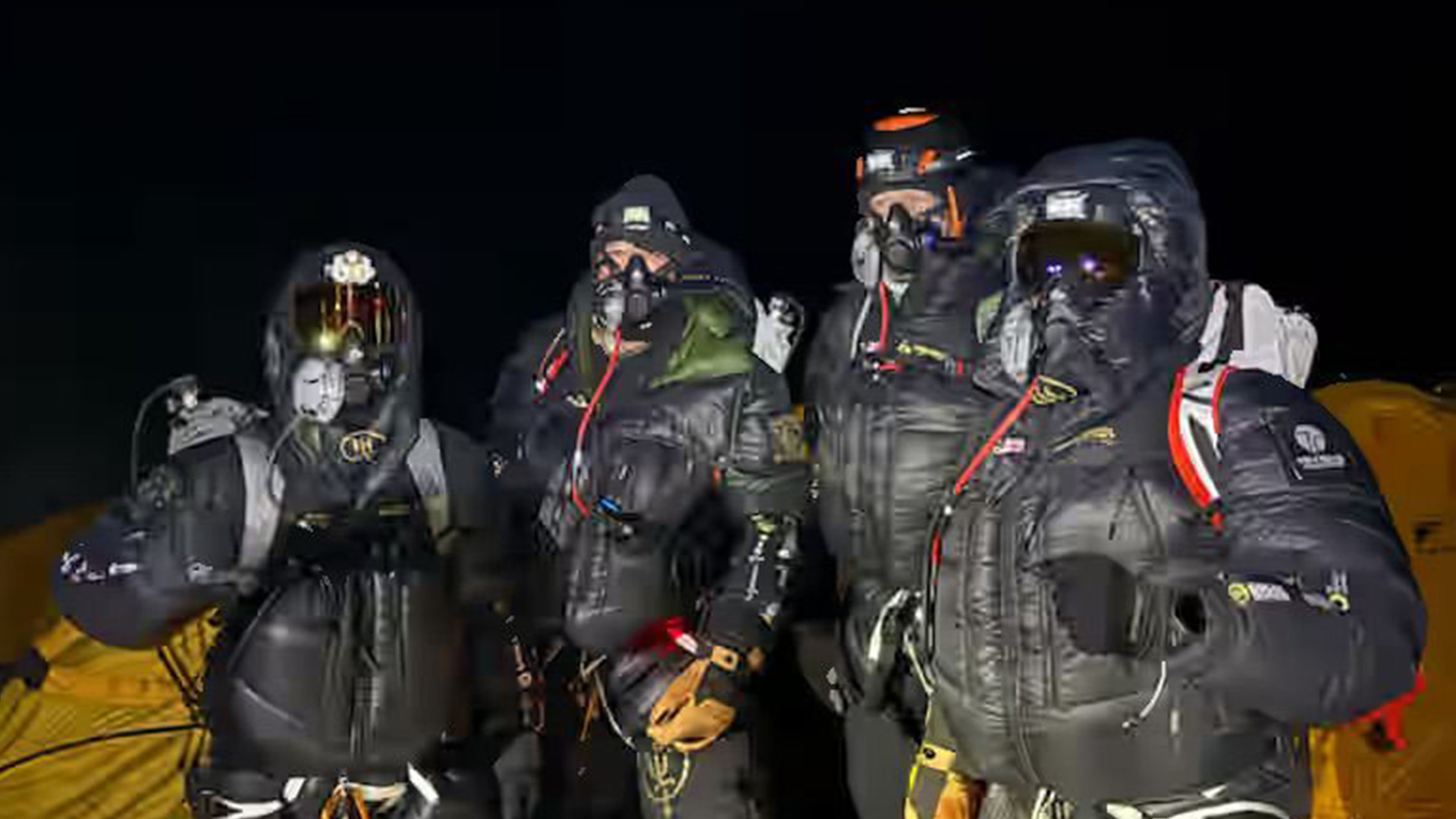
Maj Miller said that xenon gas was part of "a belt and braces approach" to training for the expedition.
"So, the xenon gas stimulates the same changes physiologically as sleeping in the tent," he said.
"And the tent simulates the same physiological changes as actual acclimatisation on the mountain.
"So, fitness training, solid mountaineering experience, [and] solid pre-acclimatisation schedule and all of that combined."
He addressed the controversial nature of the use of xenon gas in this expedition during the interview, as the World Anti-Doping Agency has banned the world's sports stars from inhaling the invisible gas to improve performance.
Maj Miller argued that using xenon gas is about making the treacherous mountain safer.
"We don't see it as taking away from the purity of the sport," Maj Miller said. "We think of it as making the mountain safer.
"And over the couple of days, we have climbed past a number of dead bodies.
"I just wonder if xenon would have made a difference in some of those fatalities."
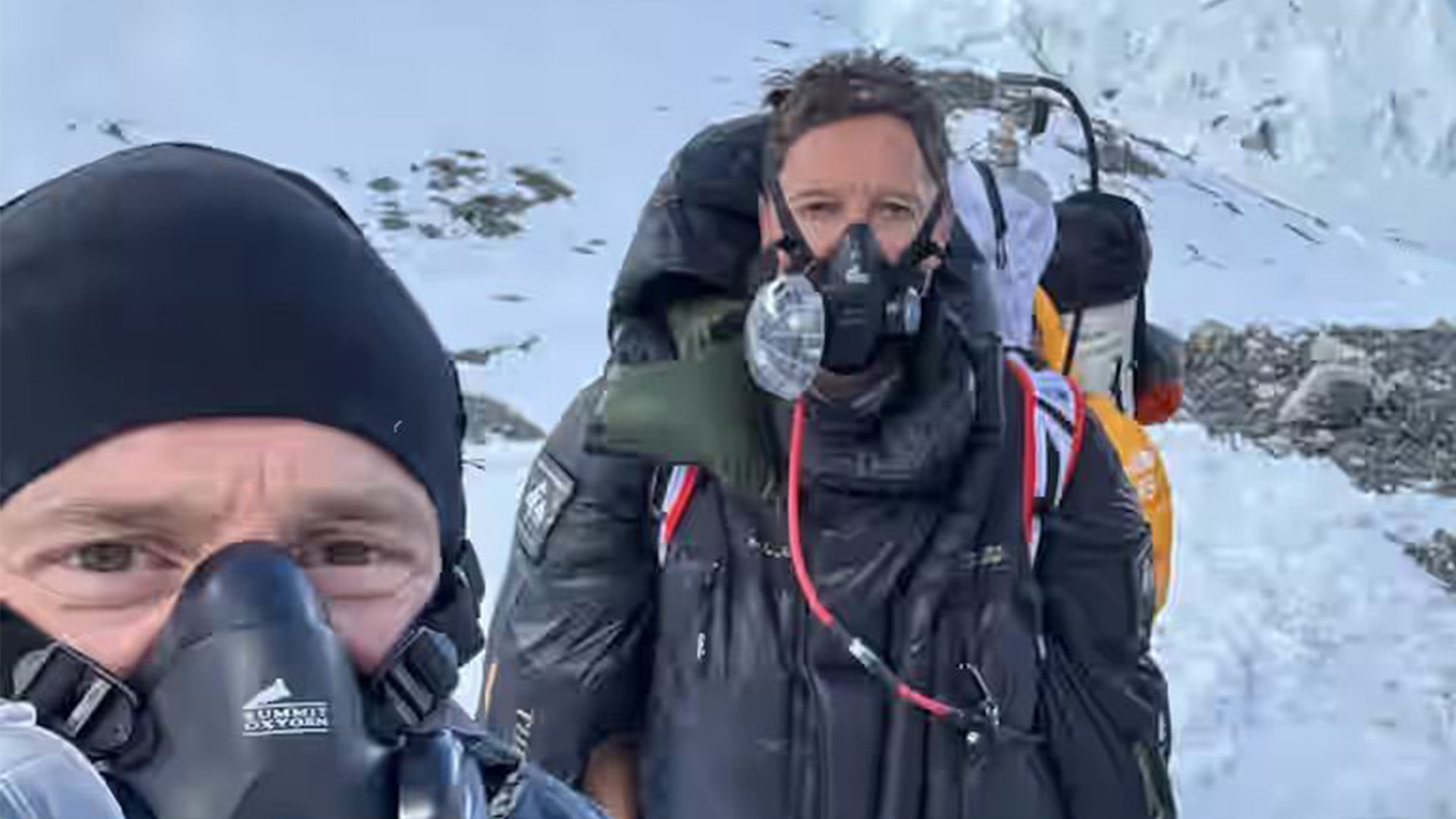
Mr Carns said that the expedition has put his life into perspective after he walked past the dead bodies on the way to the summit.
"It makes you think, and it makes you realise that you've got to surround yourself with loved ones," he said.
"You've got to live life to the best of your ability every day because at some point it will end."
He said the one thing he would take away from the expedition was that he needed to live life to the maximum.
Donations can be made to the Mission Everest team here.

